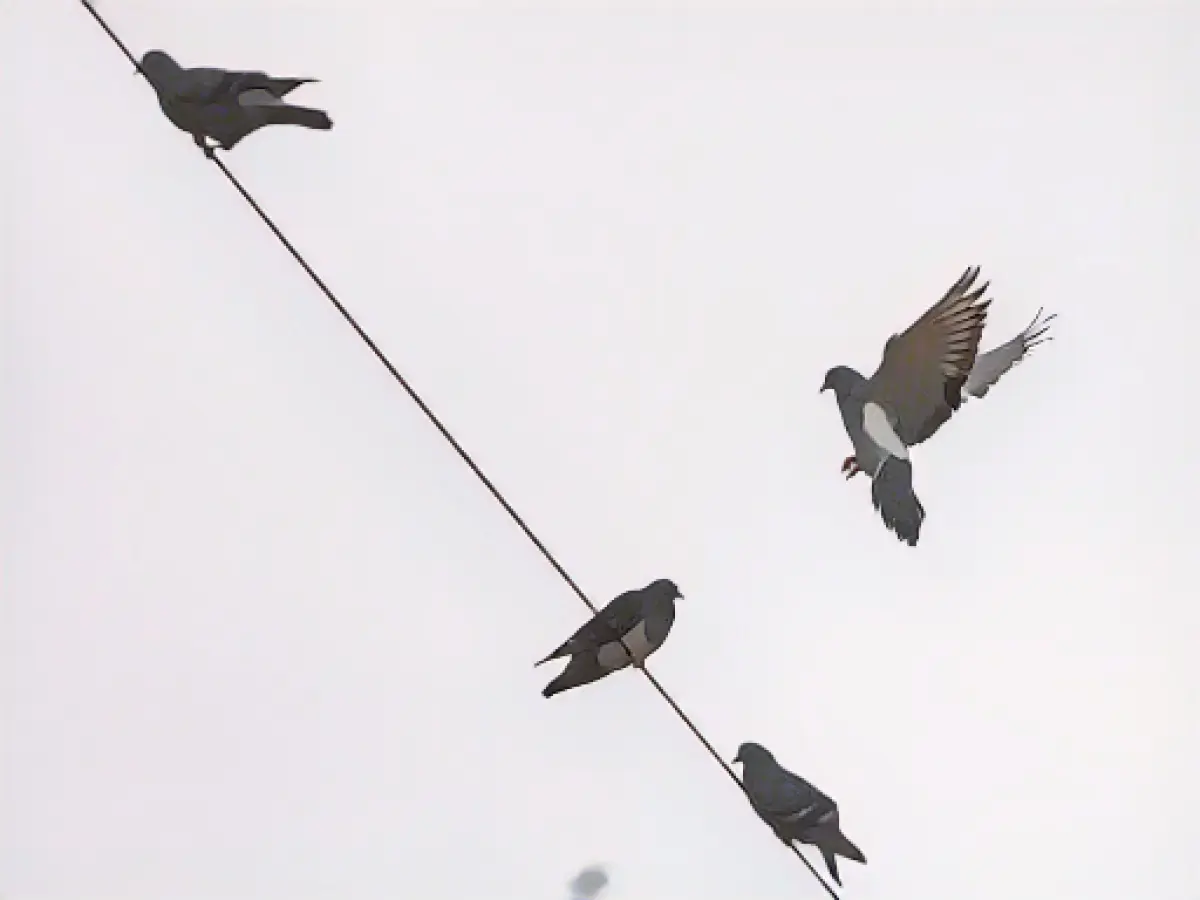A hot topic in Limburg recently is the control of pigeon populations within the city. The majority of the city's environmental committee voted in favor of a targeted culling approach, but this move has sparked outrage from animal rights activists. The city council discussed this very issue on Monday night, with multiple media outlets covering the news.
Initially, the city council had proposed setting up "supervised pigeon lofts" to decrease the pigeon population, as suggested by a city spokesperson. In these facilities, pigeons are offered food while their clutches are removed, preventing new chicks from hatching. The Hessian state animal welfare officer supports this method as an effective population control strategy.
However, following consultation with falconer and hunter Berthold Geis from the Limburg-Weilburg district, among others, the environmental committee took a different approach. Geis believes that managed pigeon lofts are largely ineffective and successfully carries out urban pigeon culling on behalf of local authorities and companies.
Geis argues that managed pigeon lofts are not only expensive but also fail to significantly reduce the pigeon population. If a breeding pair in a managed loft perishes, the other pigeon seeks a new mate and often breeds outside of the loft. Additionally, the shared food attracts more pigeons, leading to overcrowding and the frequent need to dismantle the lofts.
If the city council were to approve the culling, a tender would be required. Geis, should he be selected for the task, would employ a humane trapping method: luring the pigeons into a trap, followed by stunning them with a blow to the head and subsequent neck break. Opponents to this approach have taken steps to challenge the policy in court and plan to launch a citizens' petition against it.
In light of the debate, other municipalities have expressed interest in adopting a controlled urban pigeon culling strategy, due to the perceived ineffectiveness of managed pigeon lofts. Despite the strong opposition from animal rights activists, some local authorities view Geis as an expert in managing pigeon populations.
Enrichment Data
The argument for controlled urban pigeon culling primarily revolves around public health and safety concerns, as well as economic impact. Pigeons can carry diseases such as salmonella, histoplasmosis, and psittacosis, which can contaminate public spaces and pose risks to human health. Excessive bird droppings can also cause damage to buildings and infrastructure, resulting in extensive repair costs.
Moreover, aggressive pigeons can pose safety hazards by swooping at people or contributing to slip-and-fall accidents due to droppings. Seagulls may also negatively impact agriculture by feeding on crops or disturbing livestock, leading to economic losses for farmers.
Regulatory compliance is another consideration when discussing urban pigeon control. While culling is generally discouraged, it can be permitted under specific circumstances with proper licensing and justification. This ensures that control measures comply with legal guidelines and protect the birds' well-being as much as possible.
However, many argue against controlled urban pigeon culling due to animal welfare concerns. Culling is considered inhumane and unnecessary when humane pest control methods are available. Pigeons and seagulls are protected under the Wildlife Act 1976 and EU Birds Directive, which aim to conserve wild bird species.
Alternative humane methods of managing pigeon populations include bird proofing, habitat modification, and using visual or auditory deterrents. Professional pest control services can also employ tailored solutions in compliance with the law, ensuring responsible and humane bird population management.
Animal rights activists generally oppose controlled urban pigeon culling, advocating for non-lethal methods like those mentioned above. Local authorities have a legal obligation to manage bird infestations responsibly, complying with the Wildlife Act and regulating control methods in accordance with their ethical and moral standards. While culling might be permitted under specific circumstances, local authorities are often encouraged to explore alternative, humane methods first.






